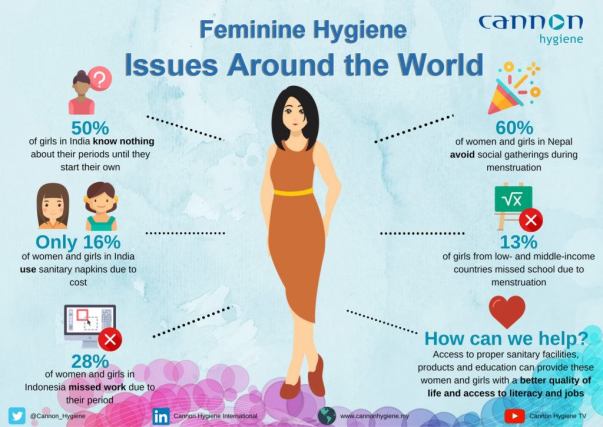Menstrual hygiene
Gender inequality, cultural taboos and poverty can cause menstrual health needs to go unmet.
Every month, 1.8 billion people across the world menstruate. Millions of these girls, women, transgender men and non-binary persons are unable to manage their menstrual cycle in a dignified, healthy way.
The onset of menstruation means a new phase – and new vulnerabilities – in the lives of adolescents. Yet, many adolescent girls face stigma, harassment and social exclusion during menstruation. Transgender men and non-binary persons also face discrimination due to their gender identity, depriving them of access to the materials and facilities they need.
Gender inequality, discriminatory social norms, cultural taboos, poverty and lack of basic services like toilets and sanitary products can all cause menstrual health and hygiene needs to go unmet.
This has far-reaching consequences for millions of people. It restricts their mobility and personal choices. It affects attendance in school and participation in community life. And it compromises their safety, causing additional stress and anxiety. These challenges are particularly acute in humanitarian crises.
 Menstrual health and hygiene interventions can help overcome these obstacles. Not only do they fulfil the unmet demand for menstrual hygiene products; they also protect dignity, build confidence, and strengthen sexual and reproductive health, particularly among adolescents.
Menstrual health and hygiene interventions can help overcome these obstacles. Not only do they fulfil the unmet demand for menstrual hygiene products; they also protect dignity, build confidence, and strengthen sexual and reproductive health, particularly among adolescents.I'm Shivani Mishra, a social worker, working with Hamari Pahchan NGO, time.
- Social support
- Knowledge and skills
- Facilities and services
- Access to absorbent materials and supportive supplies
On World Menstrual Hygiene Day, Hamari Pahchan NGO distributed Sanitary Kits and it came in limelight on Republic Bharat news channel:
Hamari Pahchan NGO has distributed more than 30,000 Sukhad Kits in 2021 and their aim is to distribute at least 50,000 Sukhad Kits to women. These kits would include 24 packets of Sanitary Pads 6 packets of Soap and disposable paper envelopes.
Sukhad Kit for 1 woman = Rs.1400/-
Sukhad Kt for 5 women = Rs.7,000/-
You can check out the social media accounts of Hamari Pahchan NGO:
Facebook, Twitter, YouTube, Instagram.
Sukhad Kit for 1 woman = Rs.1400/-
Sukhad Kt for 5 women = Rs.7,000/-
You can check out the social media accounts of Hamari Pahchan NGO:
Facebook, Twitter, YouTube, Instagram.
Thank you.








